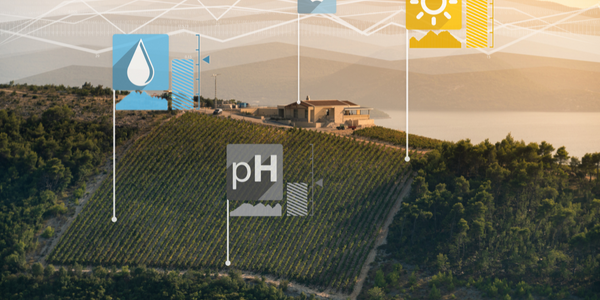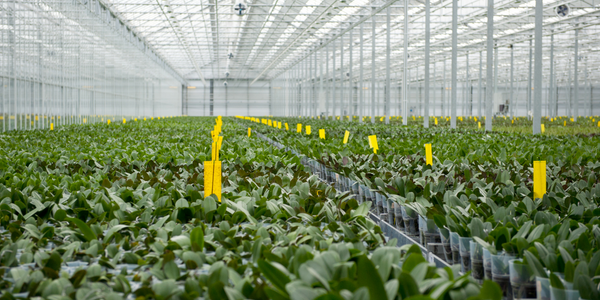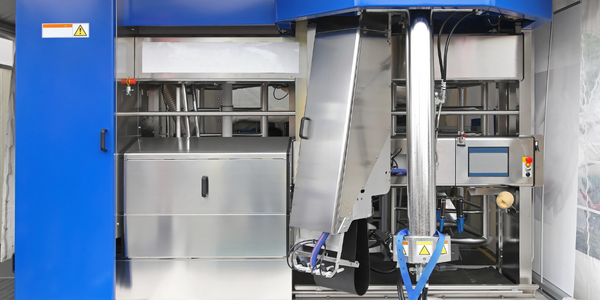Technology Category
- Platform as a Service (PaaS) - Application Development Platforms
- Sensors - Lidar & Lazer Scanners
Applicable Industries
- Agriculture
- Consumer Goods
Use Cases
- Building Automation & Control
- Farm Monitoring & Precision Farming
About The Customer
OrganicNearby's customers are twofold. On one side, they serve small farms and vendors who are looking for a platform to easily market their products. These are typically urban farmers who appreciate the support and visibility the site provides. On the other side, they cater to health-conscious consumers who are interested in easily searching for fresh, local, and organic food in their community. These consumers value the ability to search by product, location, and growing practices, and the convenience of being able to order directly and pick up at local farmers’ markets, have it delivered, or shop at the farmstand/vendor.
The Challenge
OrganicNearby was founded with the aim of providing users with access to safe and healthy food by connecting them with local farmers, vendors, and products. The team, who have known each other in the startup community for 10 years, faced the challenge of creating an app that could serve as a portal, search engine, and directory for fresh, local, and organic food sources. The goal was twofold: to provide a free resource for small farms and vendors to market their products, and to create a marketplace for health-conscious consumers to easily search for fresh, local, and organic food in their community. However, the team was non-technical and needed a platform that would allow them to move forward quickly without the need to rely heavily on a technical co-founder.
The Solution
The team chose Bubble, a no-code platform, to build their app. Bubble enabled them to build all the functionality for their app without any cumbersome customizations. The platform transformed how consumers shop for groceries online by making it simple for them to search by product, location, and growing practices. For example, a consumer can search for eggs within their shopping area and all local eggs listed by farmers and vendors will appear. With the filter, consumers can search by distance, farming practices, by farm or vendor, and by distance. Once the consumer finds the products, they can order directly and pick up at local farmers’ markets, have it delivered, or shop at the farmstand/vendor.
Operational Impact

Case Study missing?
Start adding your own!
Register with your work email and create a new case study profile for your business.
Related Case Studies.

Case Study
Intelligent Farming with ThingWorx Analytics
Z Farms was facing three challenges: costly irrigation systems with water as a limited resource, narrow optimal ranges of soil moisture for growth with difficult maintenance and farm operators could not simply turn on irrigation systems like a faucet.
.png)
Case Study
Improving Vending Machine Profitability with the Internet of Things (IoT)
The vending industry is undergoing a sea change, taking advantage of new technologies to go beyond just delivering snacks to creating a new retail location. Intelligent vending machines can be found in many public locations as well as company facilities, selling different types of goods and services, including even computer accessories, gold bars, tickets, and office supplies. With increasing sophistication, they may also provide time- and location-based data pertaining to sales, inventory, and customer preferences. But at the end of the day, vending machine operators know greater profitability is driven by higher sales and lower operating costs.

Case Study
Greenhouse Intelligent Monitoring and Control Solution
Farming Orchids is the most successful form of precision farming in Taiwan, and also the most exported flower. Orchids need a specific temperature and humidity conditions to grow and bloom, and its flowering time may not be in line with market demands, so the price collapses when there is overproduction. Therefore, some farmers began to import automated greenhouse control systems for breeding and forcing, which not only improves quality, but also effectively controls the production period and yield to ensure revenue. In 2012, an orchid farmer built a Forcing Greenhouse of about 200 pings (approximately 661 Square Meters) in Tainan, Taiwan. The system integrator adopted Advantech’s APAX-5000 series programmable automation controllers to build the control platform, coupled with Advantech WebAccess HMI/SCADA software, to achieve cloud monitoring. The staff of the orchid field can monitor important data anytime via smart phone, iPad, and other handheld devices, and control the growth and flowering conditions. System requirements: In the past, most environmental control systems of orchid greenhouses in Taiwan used PLCs (Programmable Logic Controller) with poorscalability and control, and could not be connected to the Internet formonitoring from the cloud. For advanced database analysis and networking capability, the PC platform must be adopted. Therefore, PAC Systems (Programmable Automation Controller) with both PLC programming capabilities andPC functions is a better choice.The environmental control of the Orchid greenhouse switches on and off devices like fan, shade net, cooling/heat pump, liquid flow control, water-cooling wall etc. It is controlled by a control panel of electric controllers, and is driven by a motor, to adjust the greenhouse temperature, humidity, and other environmental conditions to the set parameters.










